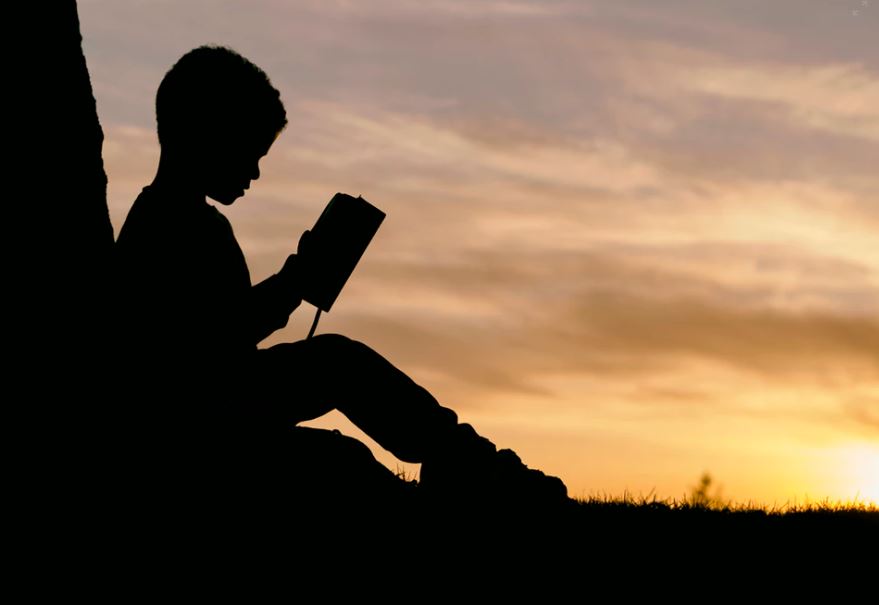Sometimes parenting feels like a constant balancing act—between showing mercy and administering consequences; between providing your kids with opportunities and giving them unscheduled time to rest and be creative; between stepping in to protect and care for them and helping them learn to solve problems and advocate for themselves.
As if all that wasn’t enough to deal with, our broken world constantly calls on us to find what can often seem like a very fine line between appropriately shielding our kids’ innocence and helping them learn gratitude, compassion, and empathy. The global refugee crisis is one area that calls on us to distinguish that line for our families. We all wish we lived in a world where every child could live safely in the country of his or her birth, where families never had to pack up a few belongings and flee everything familiar just to survive.
But that’s not the world we live in. And as much as we might be tempted to try to conceal these harsh realities from our kids as long as we possibly can, our heavenly Father calls on us to care for strangers (Matthew 25:35) and treat foreigners fairly and with compassion (Exodus 22:21; Leviticus 19:33). And we are to pass these values on to our children (Deuteronomy 6:6-7).
So how do we talk to our children about the refugee crisis? How do we teach them to show compassion and empathy for displaced kids who live far away—and those that they have or will encounter in their own school, church, sports team, playground, or grocery store? This was one of the questions foremost in my mind when I wrote Far from Home. I wanted to tell a story that would help my own young sons understand what it means to be a refugee, how refugee children are different from them and how they are the same, and how God feels about those who are displaced. More than two years after I first conceived the idea for the book, I still have so much to learn about this topic, but here are a few ideas that have come out of my journey.
Inform Yourself
You don’t have to become the world’s foremost expert on the refugee crisis, but you want to prepare yourself to answer at least some of the questions your kids may have. Thankfully, if you have access to the Internet, reliable resources are pretty easy to find. Start with well-known and proven organizations like World Relief and UNHCR (I especially recommend World Relief’s free ebook 8 Things You Should Know about Refugees).
Know Your Kids
I hope that learning more about who refugees are and the challenges they face will spur you to do what you can to love these neighbors, including helping your kids do the same. But before you dive in, consider where your kids are in their own lives. The refugee crisis is a difficult, sad, and scary thing to think about—we’ve all been tempted at times to turn off the TV or radio or close the browser window because the news is just too awful. If your child is going through or just emerging from a difficult experience or a big transition, his or her little heart simply may not be able to process this tough topic.
It’s very important to avoid comparison and peer pressure around this issue. I know it’s hard when it seems like all your friends’ kids are having lemonade stands every weekend to raise money for aid organizations or leading multilingual Bible studies for refugee kids in their schools, but resist the temptation to force the topic with your kids just so you can feel like you’re doing your parental duty. Don’t be discouraged if your kids shut down, resist, or seem completely clueless or disinterested when you try to teach them about refugees. Wait a few weeks or months (or more, if it seems appropriate) and gently and patiently try to broach the subject again.
Find Resources
It can be very helpful to have a book, articles, or other visuals to help guide your conversation. I wrote Far from Home specifically for very young kids—I wanted it to be accurate and truthful but not overwhelmingly sad or scary for little hearts and minds. The Journey by Francesca Sanna is a beautifully illustrated and compelling depiction of the refugee experience (but make sure your kids are ready for intense topics like the death of a parent, seeing a mother frightened and crying, and a scary encounter with a border guard). For older kids, 8 Things You Should Know about Refugees and/or some carefully vetted news stories might be appropriate.
Sharing a sampler copy of Far from Home with my then eight- and almost-five-year-old sons was one of the most meaningful moments in the book-making process. As wonderful as it was to show them the almost-completed fruit of my effort, creativity, and energy, even more meaningful was watching them identify with my protagonist and eagerly follow his journey from loss to hope.
Help Them Help
Don’t leave hope out of your conversation! Make sure to let your kids know that even though the refugee crisis is big and complicated and scary, there are things we can do to help. After I read Far from Home with my boys, I gave each of them one of Preemptive Love Coalition’s adorable knitted pandas, handmade by refugee women. We talked about the brave moms who are still working to provide for their families and about how my sons could remember to pray for them and their kids whenever they played with or cuddled their pandas.
I hope these ideas are helpful to you and your family. I’d love to hear about your conversations, what you’re learning, and how you’re loving your neighbors near and far. Feel free to connect with me on Facebook and Instagram @sarahrubiobooks or at sarahparkerrubio.com
Find Your Way: A Story of Loss, Refuge, and Hope by Sarah Parker Rubio
Woken in the middle of the night, a young boy knows that what he fears has come to pass: he and his family must begin their long journey away from everything he’s ever known. When he meets a kind lady at a bus station, she tells him the story of another boy who had to go on a hard journey, but who grew up to save the whole world.
Far From Home is a simple but multi-layered refugee story (drawing directly from headlines) that will help children understand the world around them and remind them that they are not alone.






